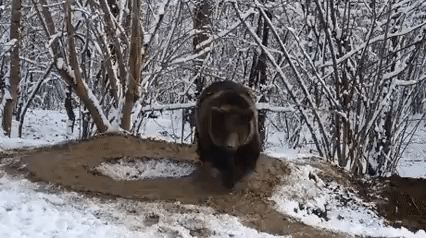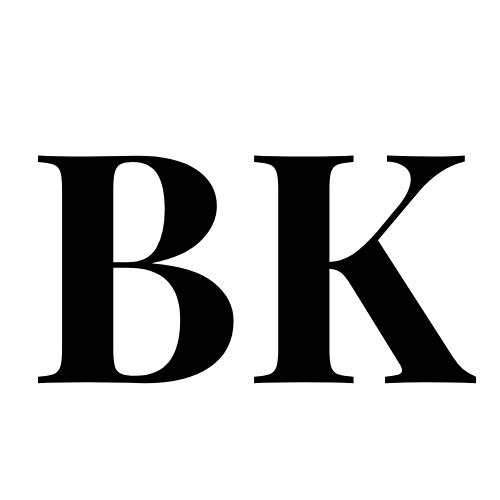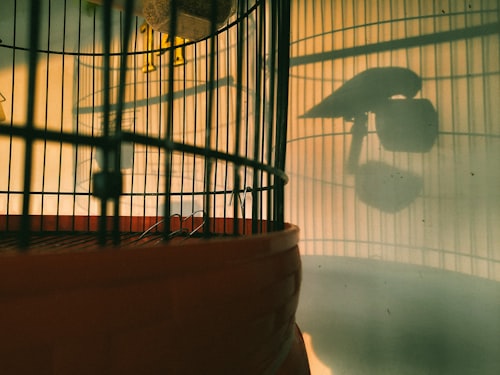There was a bear named Ina who lived in a Romanian zoo where she spent two decades of her life confined to a cage not much larger than her body.
What little agency she possessed, she exercised by walking the perimeter of that cage each day. Ina didn't know any better or any worse; she only knew the cage.
The closest she came to freedom most days was when her fur brushed against the bars, poking her snout through the air between the cold iron. Her paws had memorized every inch of that patch of ground, drawing circles around it thousands of times each year. She knew this cage better than her own body.
One day, Ina was released from her cage.
And what did she do?
She continued to walk the outline in the dirt of where the bars had been, no matter how far away from it they took her.

The Great Unlearning of the Post-Pandemic
As we approach what feels like the other side of this pandemic (🤞🏾), I was reminded of this story about a bear and how, in a way, we've all been stuck in a cage for 2 years.
Millions died. Many stayed inside. Some compromised with their circumstances. Some still worked in service to society with their own safety on the line. And some simply disregarded any world beyond their own. Regardless of how we responded, even the freest of us found new limits surrounding our lives. And those who had the least freedom to begin with were lucky if they survived.
When we're inevitably let out from this cage, there are limits we'll have learned—limits we will have to unlearn. But my hope is that we will still be able to see the lines in the dirt. We've spent more time living without them than with them, after all.
What interests me more is those limits that precede the pandemic—the walls, the ceilings, the floors we've lived within all our lives. The cages, like Ina's, so close to our eyes we can no longer distinguish between the bars and who we are.
The personal gift in the curse of this global pandemic, I think, is the opportunity to free ourselves from those cages too. To rethink the underlying assumptions and invisible limits that restricted our personal and collective imaginations.
My own imagined cage revealed itself in how I viewed the relationship between my work and worth, my time and money. In a lot of ways, I was still running full speed in the pursuit of more, which may have served me when I had less, but stopped being necessary several years ago.
In this cage, a relentless whisper burrowed in my ear: "Either give it your all or you are nothing." It had said if I wasn't living in full service to the God of More—bleeding my boundaries dry at Capitalism's altar—I would f a d e a w a y.
For myself and many others, the pandemic unmasked the religion of Productivity as a cult, showing us all just how much of it was performative padding—meetings booked to look busy, hour-long commutes for in-office video calls, outputs optimized for optics—against the backdrop of a stage on fire while someone from behind the curtain yelled: "The show must go on!"
Hitting Pause on my Career
I recently decided to take a career break. Between a prolonged pandemic, an unstable world, personal health challenges, and compartmentalizing it all while constantly working, I could feel myself deteriorating. Family and friends saw it too.
So I decided to step outside the cage of my career for a bit. To allow myself a summer to rest, learn, create, and write the book that lives inside me, while I lean into self-employment.
And what did I do instead?
I continued to walk the outline in the dirt, working full-speed on a freelance business to get to a certain monthly income as fast as I could by an arbitrary deadline I'd set for myself.
I had all the ingredients of career security—a nice bit of savings, zero debt, a strong portfolio, marketable skills, a steady stream of recruiters in my inbox, and the confidence I could find decent work whenever I needed. In the face of such abundance, why did I still find scarcity and urgency staring back?
"Hurry up and recover," I said to my own exhaustion, "We need to get back to work."
It took a month of deliberate slowness to acclimatize to a life with no ceiling, no floor, and no walls anymore. To realize I could take my time building a home I wanted to live in, not another cage in a different colour.
What helped me the most was talking openly about the ups and downs with friends and acquaintances who had already reimagined their lives in a new city, with a new business, or a new mountain to climb.
There is a common thread in all their stories. A moment when they felt like they were walking in circles along the walls of a cage staring at their feet, only to look up one day and realize, at some point when they weren't looking, the cage had simply stopped being there.
As I turn 31 today on 02/05/2022, I've decided to look up from my own feet for the first time in years and find out where beyond the bars they take me when given time and permission to choose the direction and the pace.

